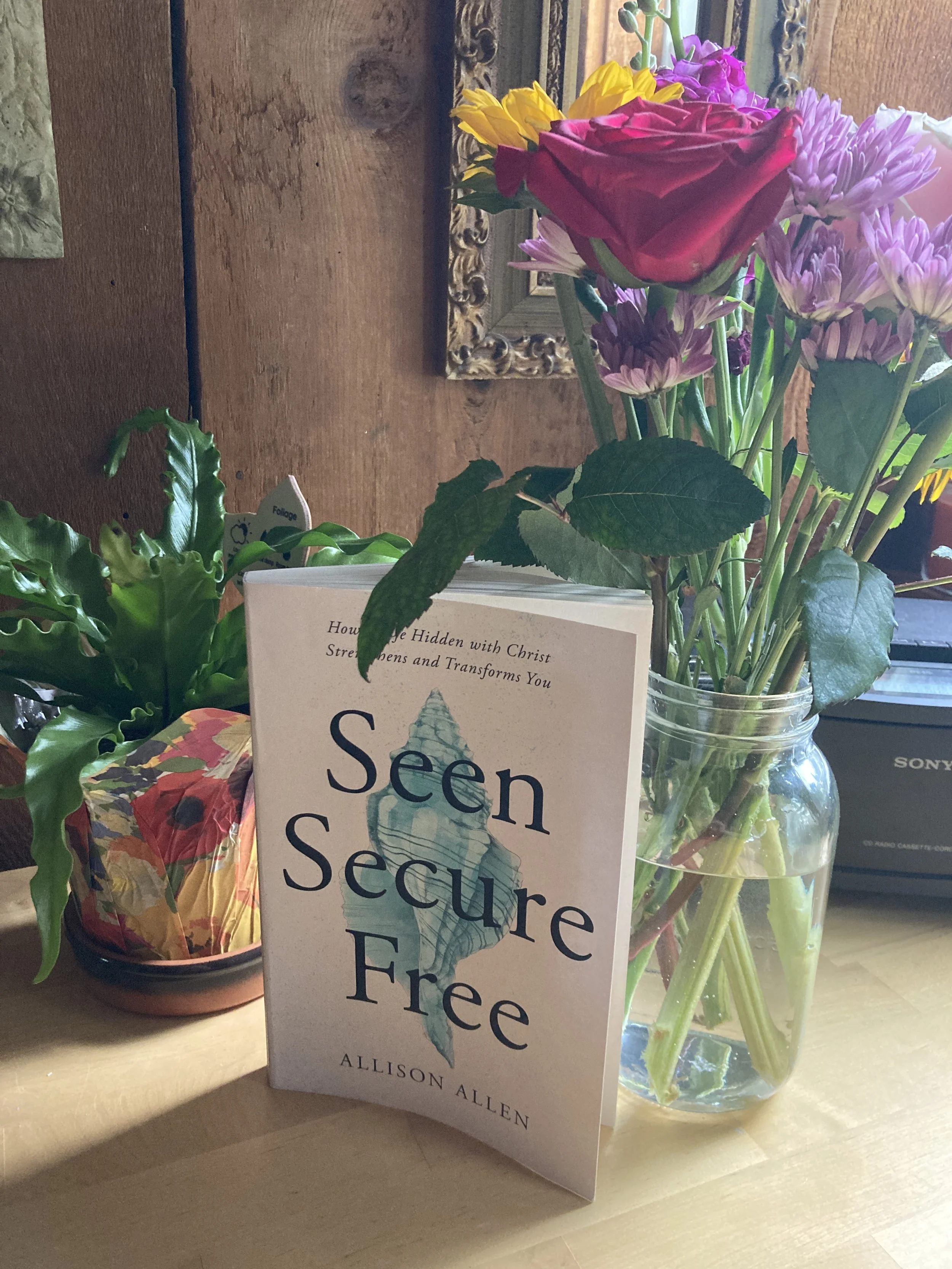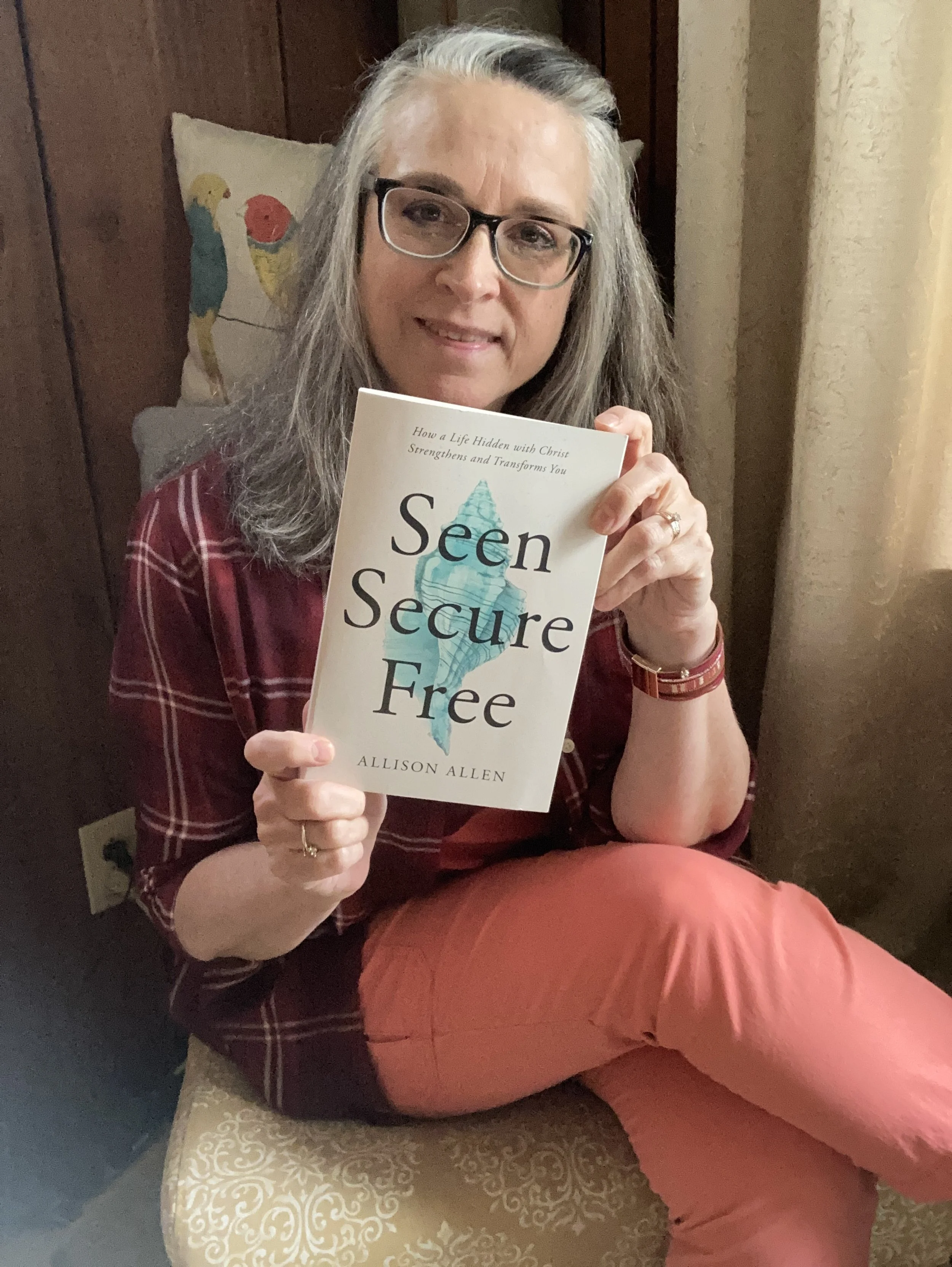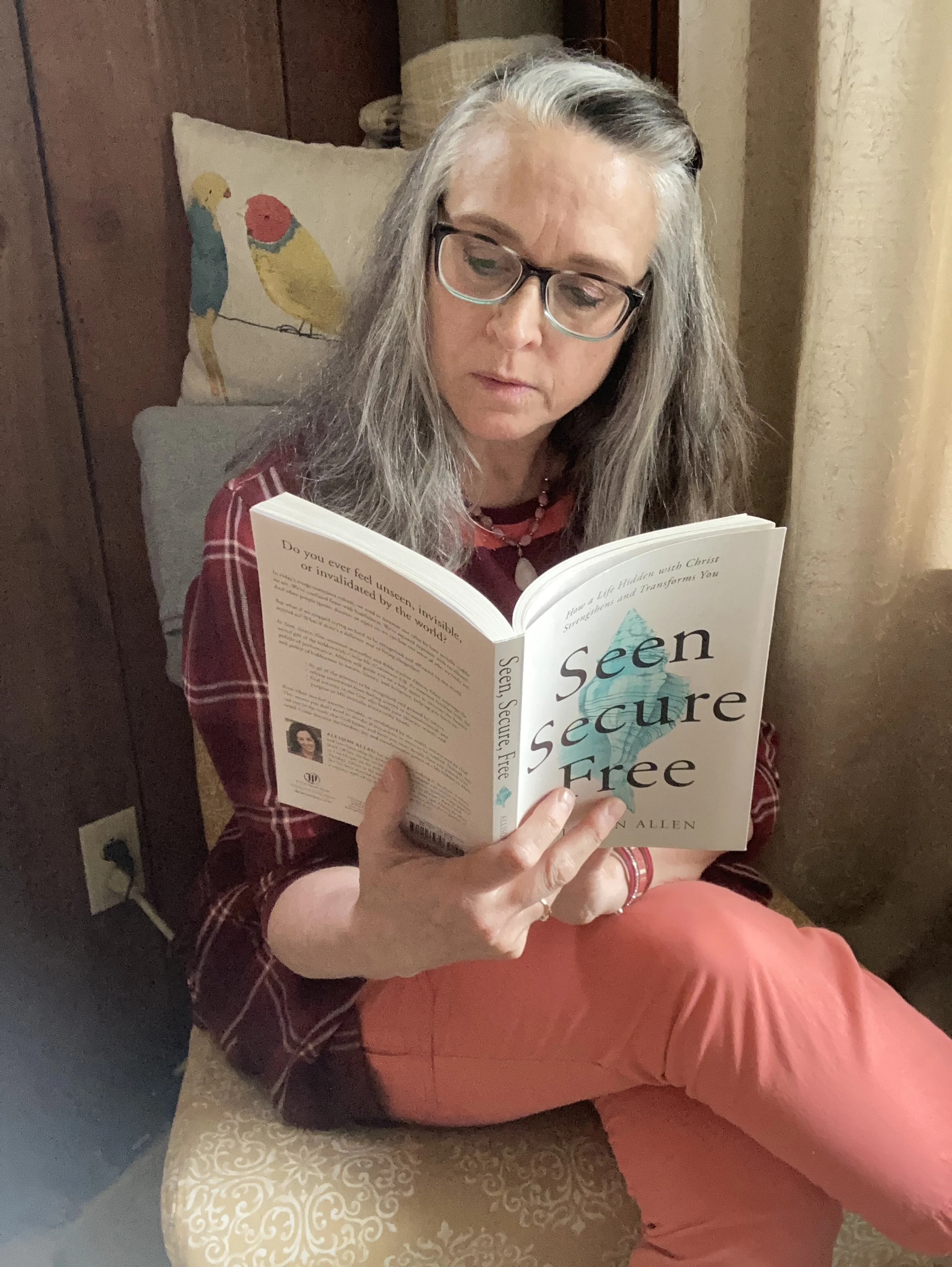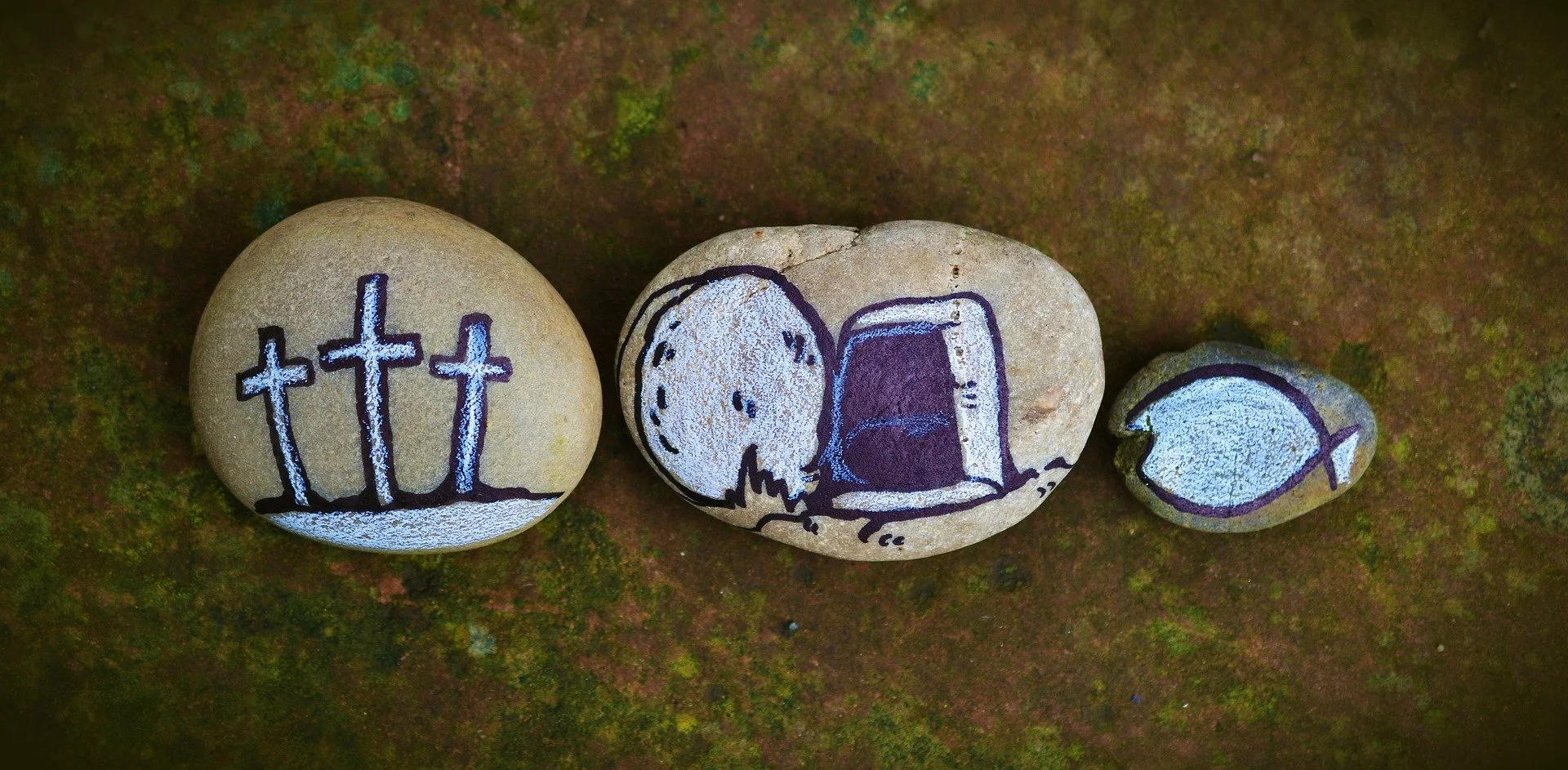A Book Review: Seen, Secure, Free by Allison Allen
(This book was gifted to me in exchange for a review. No money exchanged hands for this book.)
I found another book through Frontgate Media that looked like a good read so I am writing another review. This book by Allison Allen, Seen, Secure, Free takes a look at our hidden lives with Christ, explaining why these hidden places are not meant to be places of frustration and unknowns, but opportunities for deep, personal, intimacy with our savior, Jesus Christ.
Allison Allen’s story encompasses drama in the most literal sense. After attending and graduating from Carnegie Mellon University with a Bachelors in Fine Arts, Allison ended up on Broadway performing in over 600 performances of Grease. Allison also performed with Women of Faith in their one woman drama presentations all across the country for three years. Currently, Allison works with Lisa Harper on Lisa Harper’s Back Porch Theology podcast. This is Allison’s fourth book.
Here is a good synopsis of Seen, Secure, Free.
“In today’s image-conscious culture, we tend to measure our value by how socially visible we are. We’ve confused fame with fruitfulness. We’ve equated exposure with excellence. And when people ignore, dismiss, or reject us, we can lose our sense of who we truly are...
Even when you feel unseen, invisible, or invalidated by the world, you are seen by God. This means you don’t need to wonder if you matter or strive to be noticed. Instead, you can rest in the truth that God knows and loves you more deeply than any person every could...”
Allison and her family have been frequent visitors to the Outer Banks of North Carolina. Throughout the book Allison uses the beauty and treasures of the Bank to show how God has spoken to her in the hidden places of her life. One of the most beautiful finds she discovered on the beach was a complete Whelk shell.
“Whelk shells are usually milky, but this one looked as if a midnight sky had been reduced into one of nature’s most delicate husks, rounded out by a perfect band of stars—as if an Impressionist master had daubed and brushed a paintbrush upon it. In all my years, I’d never seen anything like it.”
Through the use of her own personal experiences, passages of scripture, and her own creative writing skills, Allison takes us through the realities of a life that is seen, secure and free in Jesus Christ. In my own life I have experienced times where I have felt unseen, and that I don’t matter. It seems in our world today much of the emphasis on who is valuable and whose life is meaningful has to do with outward accomplishments and accolades, whether it be trophies, awards, or likes on social media.
Allen’s book takes us on a journey to discover, like that beautiful shell, the value and import of that which is hidden in Christ. She begins with the section titled Seen. In this section we are reminded no matter how invisible we feel, we are always visible to God. Using Concealed Characters like One of Many Others (Luke 8:1-3), and the Daughters of Shallum (Nehemiah 3:12), we learn:
“We are seen by the God of the universe. Our worth, our beauty, is in the eye of the Beholder. Knowing this secures us and frees us. It changes our focus in life and catapults us into the glorious freedom of children of God.”
In this same section we revisit Hagar. Hagar, slave of Abraham and Sarah; mother of Abraham’s seed, running from her master’s wife. God saw her. Hagar wasn’t looking for God, but He saw her, and He came to her and spoke to her.
“God has His eye on you—not to bruise your battered heart or to turn you inside out and critique you but to bring to you the only balm that can heal you. When you are experiencing spiritual heart failure, God will resuscitate you. Whenever you think you are alone, think again.”
As we traverse the next two sections of the book we hear from other hidden characters, like the priest that helped carry the Ark of the Covenant across the Jordan River into the Promised Land. Allison does a beautiful job of bringing to life, in bite sized vignettes, people who were mentioned that we really know nothing about. She quickly delves into what they might have been thinking and feeling during the different events described in the Scriptures. Through these creative pieces she embeds the specific ideas that we are not just seen by God, but He also secures us and gives us true freedom.
“There is glory to the hidden life. There is a radical transformation when intimacy is pursued and cherished...the battle is won in the hidden places, in the hard in-between, in the long center years between the call and the fulfillment, in the difficult and faith-filled standing in the muddy riverbed, knowing that God is a faithful and “and every present help in trouble.””
I believe Seen, Secure, Free is a must read for anyone, but especially for women. We are so often the ones who are struggling in the hidden parts of our lives. I found this book very helpful at a time when I am not sure what is next and waiting is the only direction I have been given. Allison’s words reminded me that I am seen, and to dive deep into this time of being hidden in Him.
















































































